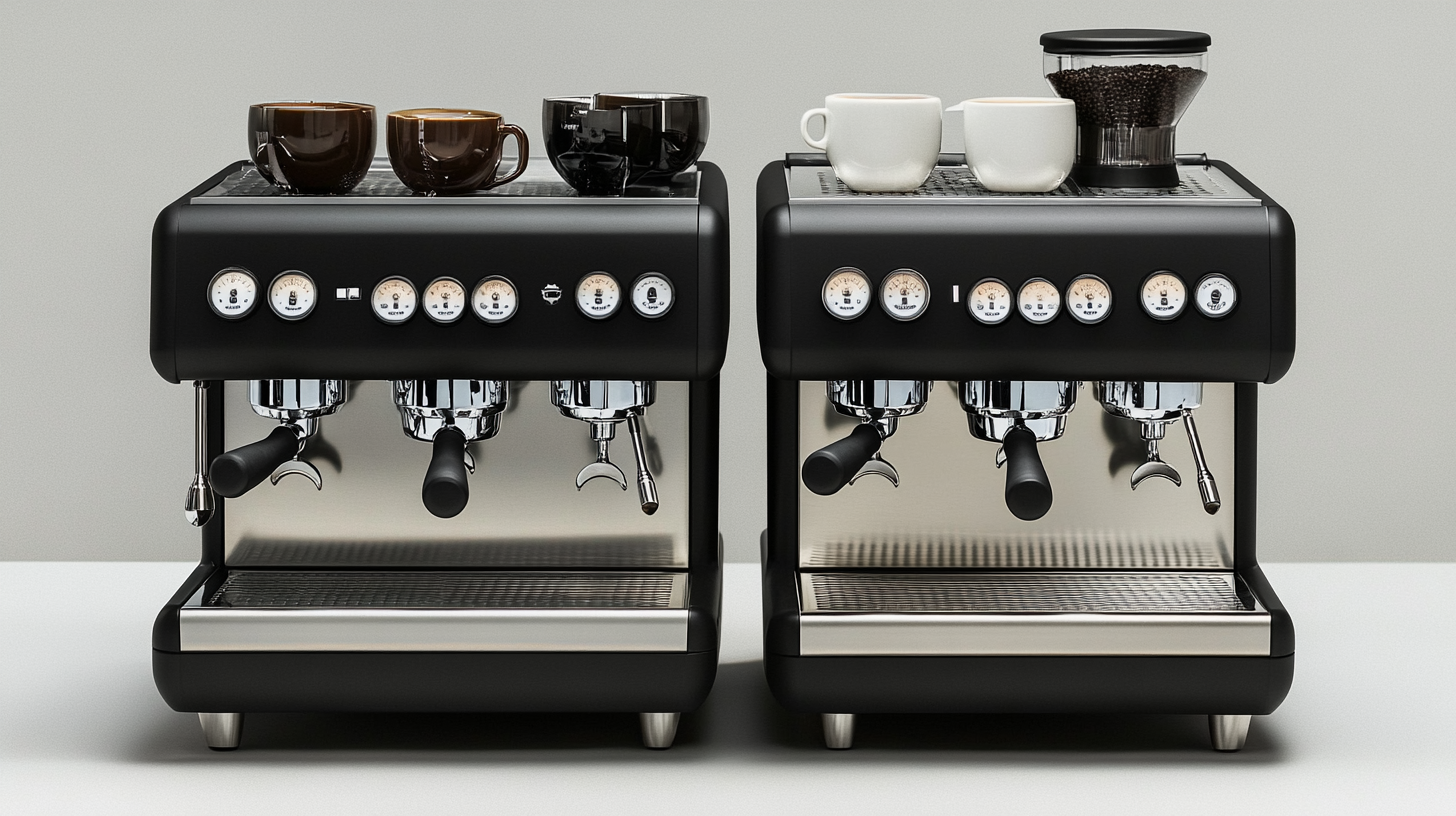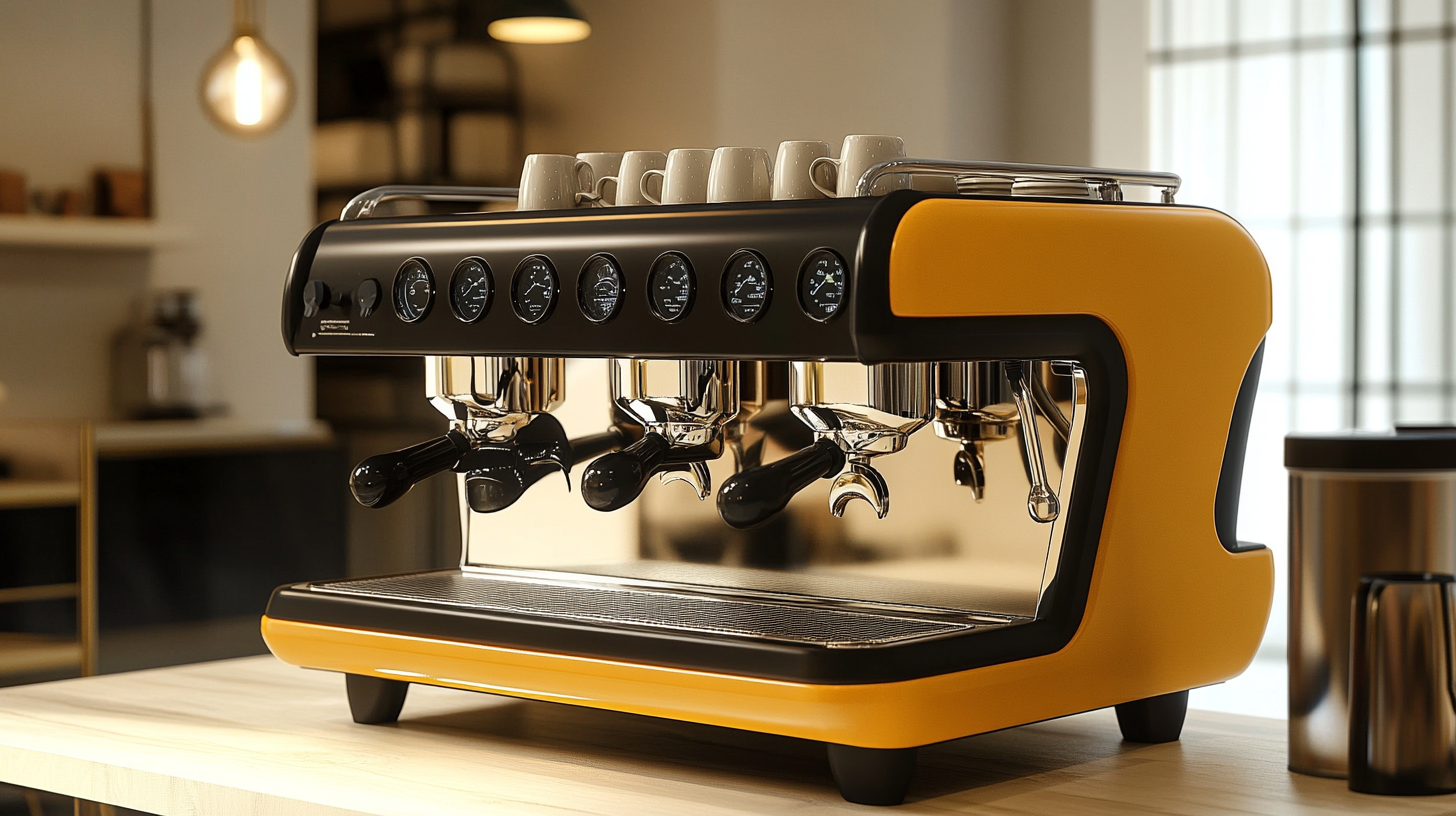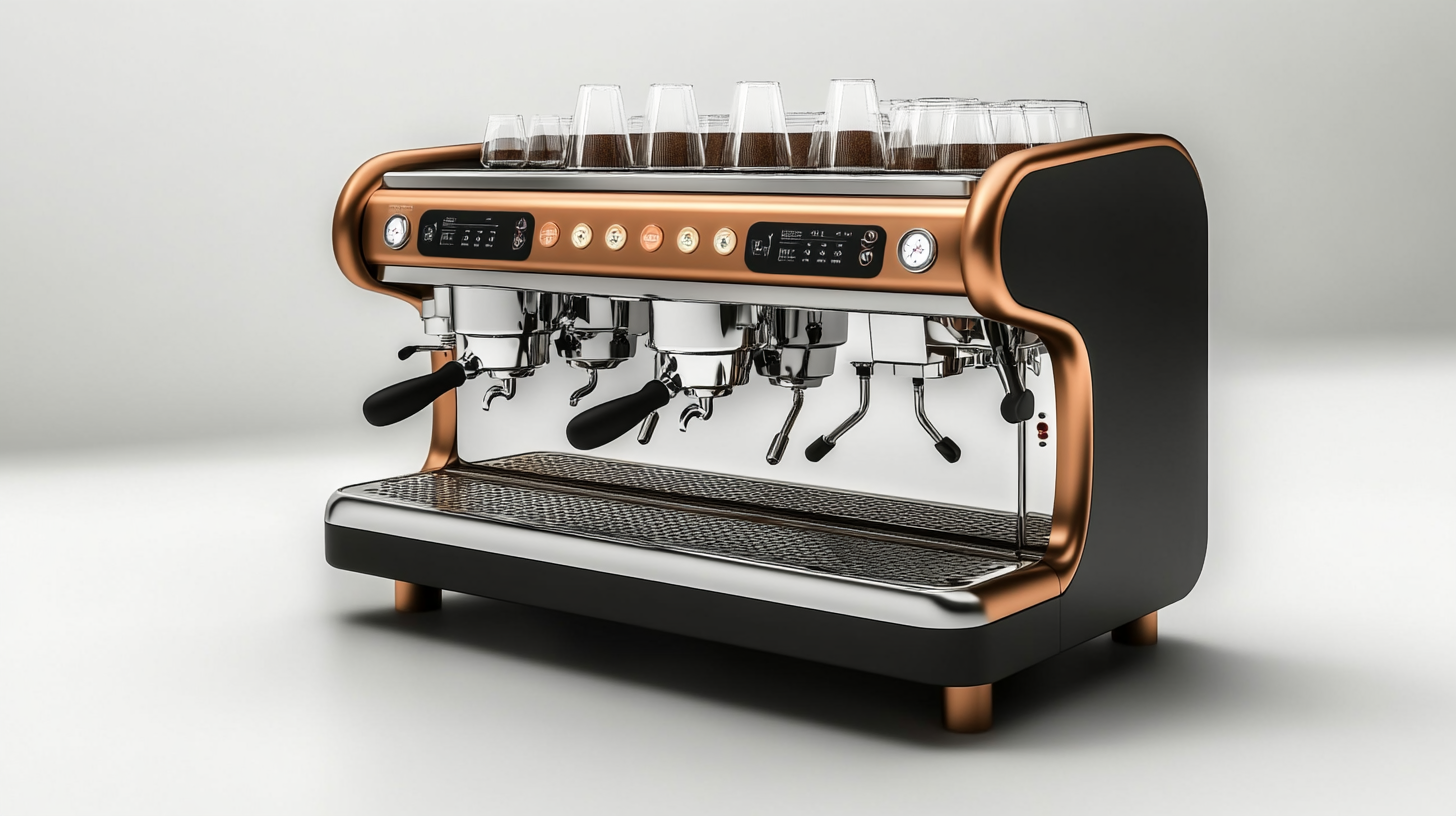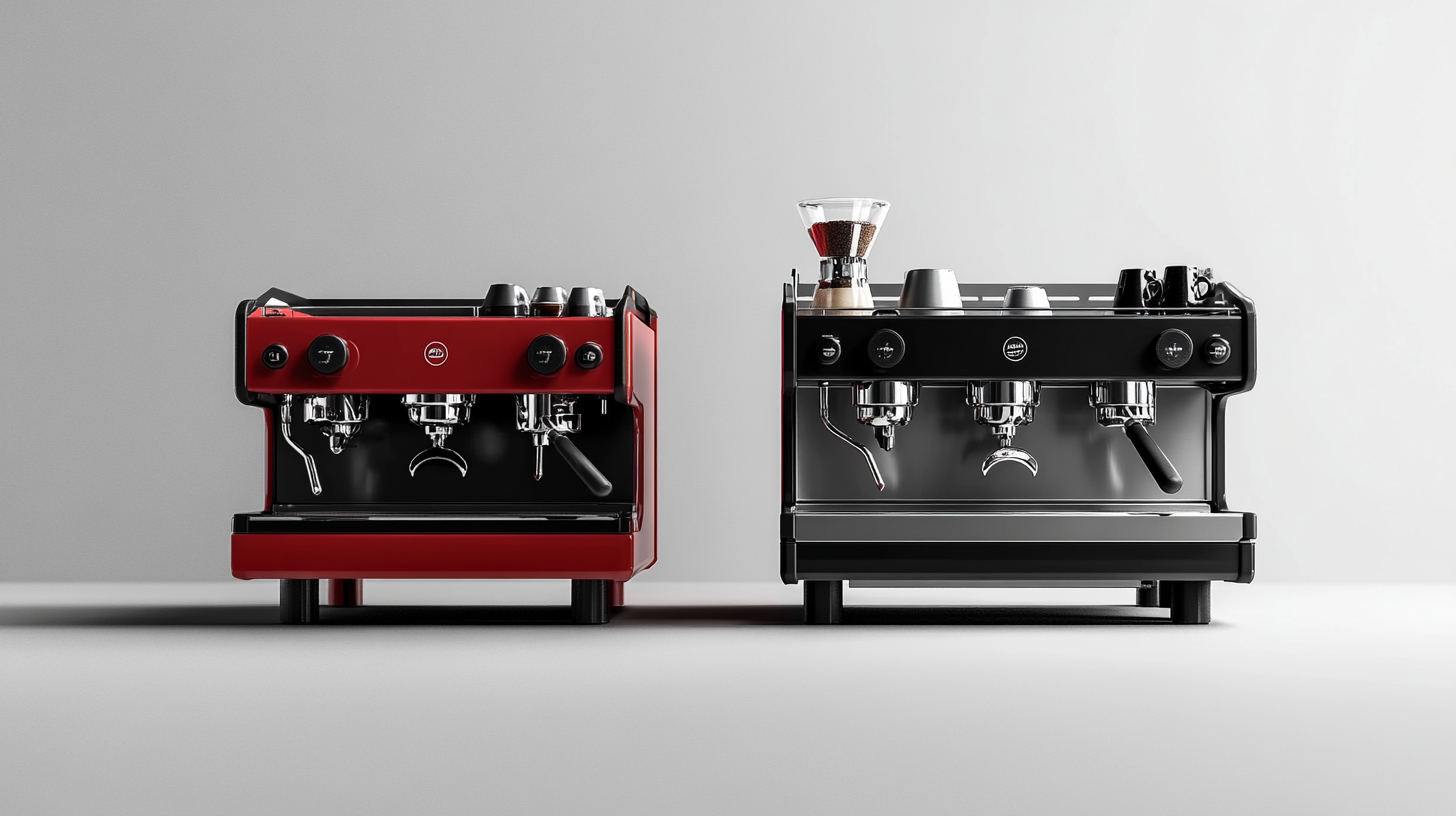Discover the Ultimate Guide to Selecting the Best Espresso Machines for Your Business Needs
At work in today's espresso-demanding coffee world, there is no doubt that machines have to produce the best espresso available in the business. Such a business could be a busy café or small little coffee shop or perhaps a posh and fancy restaurant. Whatever kind of business that is, one thing is for certain-how much more it will enhance quality and experience-is in the kind of espresso machine you use for your coffee-bar. We're talking about many options available out there, so the hunt for espresso machines may be overwhelming. This looks like a guide to simplifying that selection process in terms of the features you should be looking for in an espresso machine for business.
Capacity for brewing, ease of use, maintenance, and versatility are some of the features to look out for when trying to discover the right espresso machine for your establishment. From entry-level models for smaller businesses to advanced high-volume applications: With this knowledge under your belt, you will be empowered to make a decision that drives your coffee service into the stratosphere. Join us in looking into the top recommendations and expert tips for choosing the best espresso machines that will meet your business demands and constantly amaze your customers with delightful coffee experiences.

Understanding Your Business Requirements for Espresso Machines
Determining needs is one of the most important things concerning the espresso machine purchase for the business. Each type of establishment will always differ in how much it needs, thus affecting heavily the type of espresso machine that serves it best-for instance, a small café or a crowded restaurant. Evaluate the amount of coffee you expect to sell each day. A high-traffic café would require a big machine that would take multiple orders together, while a smaller operation could do perfectly well with a smaller model. Additionally, consider the types of drinks you will be serving. If your menu includes animal- or limit-based drinks, you would want to find a machine with lots of versatility, such as having multiple brewing and steam functions. It's also important to consider your staff's skill level as part of the criteria. If you're using experienced baristas, they might appreciate the control possible with more complex machines, but for less-experienced staff there may be more benefit in a user-friendly, direct kind of machine to ensure consistent usage. Finally, last but not least, maintenance and serviceability importance should also be taken care of. After all, you can hardly get any good results without upkeep of the commercial machine. It would be best to go for models that have easy access to parts for cleaning and repairs. Warranty and service agreement factors can also be worthwhile, as they tend to increase the longevity of your investment, thus making the espresso machine a great asset for your business. It does not only help you analyze these components well and make the right decision but also enables you to align very with the needs of your business; hence, you are set for success within the competitive coffee market.

Types of Espresso Machines: Which One Suits Your Business Best?
A thorough understanding of the various espresso machines present in the market is quite essential in making the best choice for your coffeeware. Each type of machine meets a set of specific needs, and the right choice will add value to your operations and coffee offerings. The basic types include manual, semiautomatic, automatic, and super-automatic espresso machines, with each having its own features and advantages.
A manual espresso machine requires skilled artisans to control every aspect of the brewing process. This machine is most suitable for artisan coffee shops that seek to give their customers a rare experience based on the art of precision. I really consider semiautomatic espresso machines to be that nice balance of control and convenience. Baristas can grind beans and program brew time; however, some features are automated. These are favored in busy cafes, where nothing less than speed and quality is acceptable.
Automatic espresso machines, for efficiency, are programmed in such a way that the brewing process is taken control of for extremely high-volume situations. Super-automatic espresso machines vary in terms of self-sufficiency by incorporating grinders and milk frothers—best suited for fast-paced and consistent places such as coffee chains or catering services. The espresso machine type you select should reflect your assessment of specific business needs and customer inclinations to ensure your operations receive the maximum benefit while customers are delighted cup after cup.

Key Features to Consider When Choosing an Espresso Machine
Of course, a solid understanding of some basic features is necessary to determine if an espresso machine is going to fit operationally with your business. Size and capacity are two of the most major factors. If a business sees a lot of customers, a commercial-grade machine with a larger boiler and multiple group heads would prevent the delays of regular drink service, while maintaining high standards of quality.
The type of espresso machine—automatic, semi-automatic, or manual—is yet another very important feature to consider. Automatic machines are very easy to use and provide some degree of consistency due to preset functions, especially providing speed during business hours. Semi-automatic machines take more skill, allowing a barista to showcase their artistry and control of the extraction process. A manual machine may bring back old-world charm to the professionals, who will appreciate the hands-on coffee-making method.
Temperature control will also help in high-quality espresso-making. Machines with advanced temperature control systems can ensure the stability of brewing temperatures, which is essential to good flavor extraction from the coffee beans. This kind of stability throughout the brewing process goes a long way in determining taste and adding to a great overall customer experience, and that is a feature for any serious coffee-making business.

Budgeting for Your Espresso Machine: Cost vs. Quality
It is important to understand the balance between quality and cost when buying your espresso machine for the business. Even though buying a very good espresso machine is usually intimidating because of its first price, the advantages that come with it last long after the upfront cost has made it worthwhile. A good espresso machine will make good coffee for your customers over and over again, which they appreciate, thereby improving your business reputation.
Budgeting for an espresso machine entails considering many factors such as its features, durability, and maintenance requirements. An economical alternative might seem like a wise investment initially, but it results in repair costs over time and compromised quality in espresso. Alternatively, greater spending up front on an expensive model facilitates the acquisition of better results and provides protection against expensive breakdowns.
Cost versus quality analysis should also take specific needs of your business into consideration. Most of high-traffic coffee shops will, therefore, not be remiss to justify very high costs of a good machine on the basis of efficiency and durability. On the contrary, a small café that has a lower volume on any day may enjoy the balance of quality and budget of a mid-range model. Most important of all, a review of the business needs and budget before selection will guarantee that you choose the espresso machine that fits both financially and qualitatively.
Maintenance and Support: Ensuring Longevity for Your Purchase
Maintenance and support are two major factors that can really make or break an espresso machine's longevity and performance in your business. According to Specialty Coffee Association reports, a machine's lifespan can be reduced by as much as 50% due to incorrect misuse. Cleaning and servicing the equipment on a regular basis is highly essential for the smooth operation of an espresso machine as well as the quality of resultant beverages. Applying a routine maintenance schedule not just averts inconvenient and expensive breakdowns but ensures that your machine pours a perfect espresso shot regularly- something that is critical out there where clientservice matters.
In addition, dependability on a vendor with solid support smoothens the road toward boosting the life of a device. A research by James Hoffmann, a great name in the coffee industry, alludes that a company employing with companies having a better customer service might enjoy 30% improvement on the machine performance as compared to those who do not. It may include quick access to replacement parts to field experienced technicians for on-site assistance. Prioritizing manufacturing companies with superior customer service and readily available support resources protects investments and keeps operations powering smoothly.
Also, you're going to invest in training your staff on how to appropriately use and maintain an espresso machine, which can lengthen the apparatus life further. According to a report by the National Coffee Association, baristas who are well trained about the handling of equipment are 25% less likely to cause wear and tear to machines. Full training does not only help to keep the machine in good shape but also improves the consistency of the product served, which in turn makes for a much better experience for the customers.
